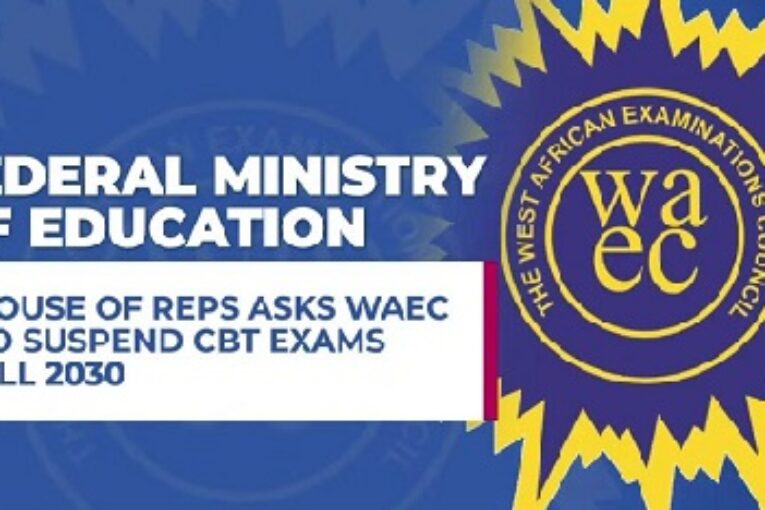
The House of Representatives yesterday asked the Federal Ministry of Education and the West African Examinations Council (WAEC) to immediately suspend the implementation of the Computer-Based Test (CBT) policy for the 2026 Senior Secondary School Certificate Examination (SSSCE).
The House also asked the Federal Ministry of Education to work with various states to include in their 2026, 2027, 2028, and 2029 budgets the recruitment of computer teachers, construction of computer halls with internet facilities and supply of standby generators for all secondary schools across the country.
The Green Chamber called for the provisions of essential facilities in private schools before the commencement of the policy in 2030.
The House stated these while adopting a motion of urgent public importance on the “Need for intervention to avert the pending massive failure of candidates intending to write the 2026 West African Examination Council work using computer-based examinations CBT capable of causing depression and deaths of students” sponsored by Kelechi Wogu (PDP, Rivers).
Leading the debate on the motion, Wogu described WAEC as a body saddled with the conduct of higher education entry qualified examinations for students of senior secondary schools in the country, since it is mandatory for any candidates seeking admission to have at least five Credits, including English and Mathematics in the West African Examination Council (WAEC).
The lawmaker said this year’s SSSCE result portal was shut down due to what “they call technical glitches,” with the candidates suffering the consequences.
He expressed concern that the Federal Ministry of Education planned to conduct the 2026 SSSCE scheduled to start next March, based on the CBT policy.
According to him, despite the outcry by the National Union of Teachers (NUT) and heads of schools in the public and private sectors, especially those in the rural area hosting over 70 per cent of students, the Federal Ministry of Education has declared that there is no going back.
Wogu said computer-based examination requires fully furnished hall with functional computers, internet facility, constant electricity supply from the national grid or a standby generator.
The lawmaker alleged that about 25,500 schools across the country produce candidates that will write the 2026 examination expected to be conducted at the same time for four months, starting from March to July.
He said most of the schools in the urban areas and in the rural areas do not have functional computers or computer teachers.
As a result of this lapse, Wogu said such schools had not used computers before, adding that, unlike JAMB, no candidate is expected to write less than nine subjects, including practical objectives and theory.
He argued that “it is wrong to start this policy now without adequate preparation”.
The lawmaker suggested that the Federal Ministry of Education and WAEC should have at least three years projection to begin the policy by 2029-2030 academic year.
He added: “The outcome of the WAEC results of students who are considered to be leaders of tomorrow, using the CBT will be devastating if allowed to commence, and will lead to massive failure, frustration, drug abuse and other social vices.”
The House unanimously adopted the motion and mandated its committees on Basic Examination bodies, Digital and Information Technology, Basic Education and Services and Labour, Employment and Productivity to interface with the relevant stakeholders in the education, information and technology sectors and report back within four weeks for further legislative action.




